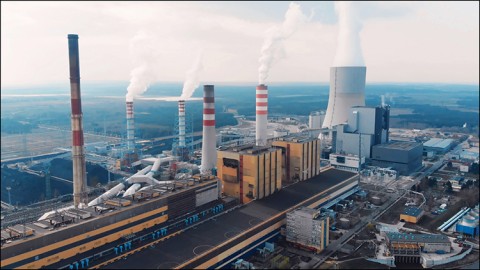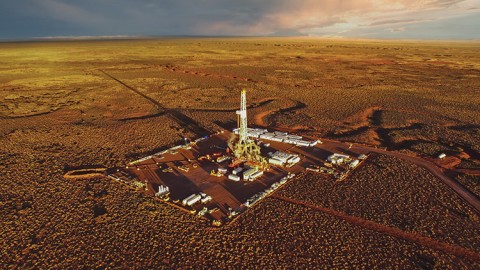To begin with, the upstream sector in the oil and gas industry is presently confronted with some of the most serious environmental, health, and safety issues it has ever faced. The oil and gas sectors continue to be a major source of revenue for the global economy. On the one hand, worldwide demand for fossil fuels continues to rise. At the same time, firms encounter difficult investment hurdles due to the tough operating environment of exploration and production operations.
General Overview
These environmental issues that have taken place over the last several decades have caused many people to demand demonstrable improvements in performance as well as more accountability and operational efficiency in the oil and gas sectors in order to ensure their long-term viability. As a result, the oil and gas sectors, like other businesses, have changed their company’s growth plan to focus on long-term sustainability, while some have responded to operational critiques.
Numerous variables, including rising population, intensifying competitiveness, global climate change, and companies to invest, as well as intraregional patterns, are all sustainable factors that have created a risky and tense economic climate. For oil and gas businesses, anticipating and tackling issues is a never-ending struggle, and they are continuously updating their strategic plans to make them as thorough and accurate as possible. This article examines the analytical findings of a survey on a few of the sustainability principles and sheds light on the current problems.
Challenges in the Industry
The petroleum sector has encountered a number of difficulties in recent years. The oil industry now must invest substantially to the global increase in energy consumption, and in light of more competition in such industries, that should minimize the overall cost of the output of petroleum products while complying with environmental rights and regulations.
Because of the high operating temperatures of deep wells, and the use of a number of contaminants to reliably excavate and yield hydrocarbons, the output of each barrel of oil, refining, and shipping of petroleum goods to the consumers is a sector that induces pollutants and emissions. The problems of sustainable development in the petroleum industry include spills, validating greenhouse gases, disposal of petroleum products storage tanks, flaring, venting, handling drilling fluids, etc.
Furthermore, some of the world’s largest oil corporations have taken judgments regarding each of these issues, and vast sums have been spent on upgrading procedures and technology, as well as interacting with native communities nearby oil and gas installations. In addition, national oil firms under political pressure and multinational oil and gas businesses under societal and legislative stress have made a number of steps to face the difficulties of sustainable development in the hydrocarbon market in recent years.
Sustainable Solutions
The oil and gas industry is noticing a growing number of oil and gas businesses trials and success with a growing set of technologies and services that are becoming greener, save expenditures, and reduce carbon emissions. With several OPEC members in the Arab World accelerating their economic transformation efforts, we can anticipate a larger and swifter implementation of sustainability measures throughout the sector, thus we can predict a lot more enterprises looking into various innovative sustainable solutions or green alternatives.
For instance, tackling the subject of over-consumption of clean water in the upstream sector becoming more critical. Water is used in a variety of oil output techniques, including fracking and isolating oil from all other components in oil sands. It can be noted that, on a daily basis, gallons of water are used, although the worldwide oil and gas sector now recycles the great majority of this water – approximately 87% – businesses are reconsidering the extraction method to decrease groundwater use from the beginning.
Also, methane leaks are a huge concern considering the influence on greenhouse gas emissions and the surrounding site. For this reason, this is a cost-efficient chance for the sector to seek solutions to decrease methane leakage. According to recent statistics from the International Energy Agency (IEA), reducing oil and gas methane leaks with presently known and future technology is economically sustainable.
Additionally, in terms of Renewable Energy Technologies (RETs), biofuel advancements are also intriguing, as they may facilitate much significantly bigger oil production in the coming years. A great existing example of this is that of Exxon Mobil; at the moment, Exxon Mobil is actively expanding its Calipatria facility and expects to be able to produce 10,000 barrels of biofuel per day by 2025, thanks to recent big achievements. This is a critical step in establishing a biofuel economy that is fully sustainable and renewable. As stated by a Renewable Energy Expert in the Sustainability Industry who preferred anonymity, “petroleum companies try their best to have solar panels or other kinds of green technologies to make the activities greener. The problem is that the companies only have small renewable technologies in their projects, but they need to have bigger volumes of renewable source technologies to cover for the toxic gasses and balance the work done.”
Moreover, both water and oil recycling is a popular topic in the industry. In terms of water recycling, oil and gas organizations are looking at more efficient tactics of reusing and recycling water for industrial processes in an attempt to lessen freshwater use. Organizations have begun seeking to utilize non-potable water by upgrading purification technologies and improved chemical-free water purification solutions to neutralize microbial pollutants including mitigating sulphate components and iron-oxidizing microorganisms. In terms of oil recycling, a growing number of businesses are turning to small-scale waste oil micro-refinery machines to convert wasted oil into diesel. This technology also provides fuel for ongoing activities and it is also a cost-effective option to even more conventional oil disposal options.
In conclusion, sustainable development necessitates inter and multi-disciplinary strategies, and several of the issues addressed by the SDGs are well past the capacity or authority of any single firm. Oil and gas firms must take an active part in interactions with key stakeholders domestic and abroad to recognize sustainable objectives and jointly define potential strategies for responding to the SDGs in the given context to reach success to make a significant contribution to the accomplishment of the desired goals.








